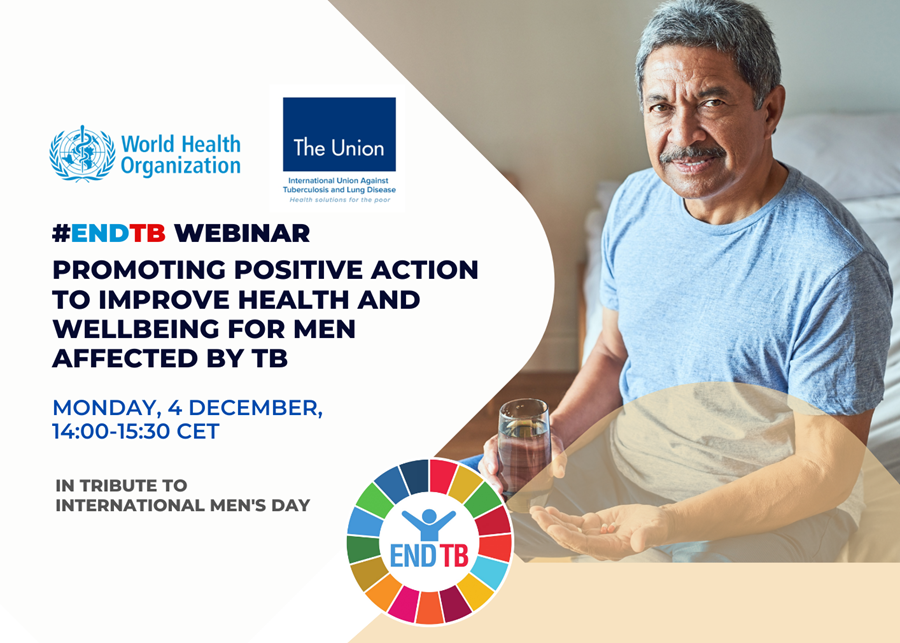
Join us on 4 December at 14:00 (CET).
In tribute to International Men's Day 2023
The World Health Organization (WHO) and the International Union Against Tuberculosis and Lung Disease (Union) Working Group on Gender Equity in TB will host a webinar promoting positive action to improve health and wellbeing for men affected by TB. The webinar is linked to International Men’s Day marked in November each year, that puts the spotlight on key issues affecting men. Diverse speakers will come together to discuss ways forward to address the determinants, barriers, and impacts that TB has on affected men, their families, and their communities. This event will advocate for a gender responsive approach as we move towards translating the commitments made at the United Nations High Level Meeting on TB into rapid action.
This webinar aims to:
·To bring together TB-affected communities and their coalitions, women’s and men’s groups, CBOs, NGOs, organizations & experts working on women’s and men’s health, policymakers, and program implementers, to promote a positive conversation around developing solutions for engaging men affected by TB in the care that they need.
·To understand the role gender plays as a social determinant of TB and the impact of the disease on mental health.
·To learn from successful examples of engaging men from other diseases/sectors/responses on how to harness the power of celebrities and people in positions of power to showcase their vulnerability to TB and to build systems of support for others with less power / privilege.
Background
Gender is one of the important social determinants of health and should be a critical component of strategies to end the TB epidemic. Globally, an estimated 10.6 million people fell ill with TB in 2022, with men accounting for 58% of those affected. Prevalence surveys indicate even greater disparity in underlying burden of disease. Key TB determinants, including diabetes, harmful alcohol consumption, and tobacco smoking, disproportionately affect men. Men’s disadvantage in TB extends to diagnostic and treatment pathways where, relative to women, men have more limited access to timely diagnosis and treatment and are at higher risk of treatment failure and death. Most new infections among men, women, and children are likely attributable to contact with men, meaning that men’s excess burden of disease and disadvantages in prevention and care have population-wide implications.
Connection details: https://who.zoom.us/j/94492806628
Password: Men2023!
Download the flyer and promote on social media, here
